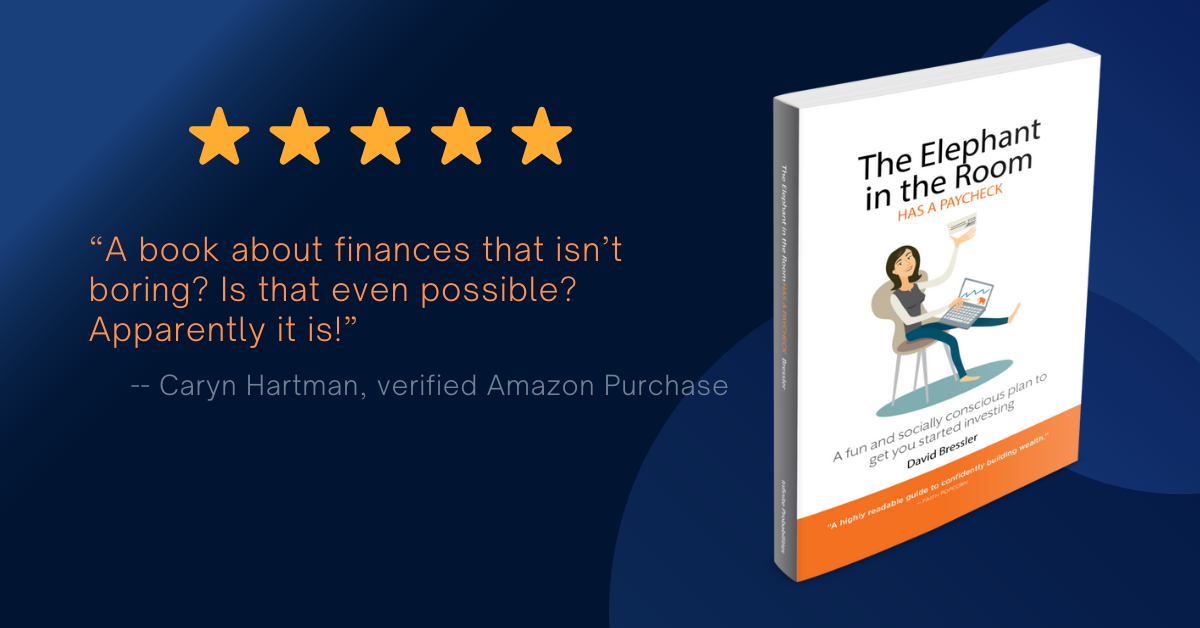I think because investing has to do with numbers, people treat it like math... as if there's an equation and if you could just figure out the right inputs, you'll get the best output.
An investing strategy is more than just investing math.
Investing companies (brokerages, banks, etc) act like Americans traveling overseas... you've seen it, I'm sure.
When someone says they don't speak English, how does a typical American react?
They talk slower, and louder... in English.
Advisors and brokerage marketing is the same as our traveling American. They simply try to figure out how to say the same thing they've always said, in different ways. Start young. Buy mutual funds. You can spend 3% of your retirement savings a year (no, 4%, no 2%... how long are you going to live?)
Regular people, readers of my book, tune out very early in that process. I've found it's simple:
- People don't trust banks.
- When people put money aside each month, but at the end of the month find their balance is lower than the start of the month, the respond by spending instead of saving. That sort of balance reduction in spite of additional saving is demotivating, habit breaking, and people check out.
Money is as emotional as food. And there are as many good investing strategies as there are recipes. Dietitians don't only work on mechanics of metabolism, or the way the body processes food. They also focus on the emotional side of eating.
Unfortunately, investment advisors prefer to stick in the land of math ignoring emotions.
I prefer a human approach
A human approach to investing involves three elements:
- Make sense. It has to make sense. Not at a "financial educational" level but at a human level. Tell people a story they can relate to, that they can make their own, and they'll find the curiosity to learn more. They'll have a framework in which to operate and structure their decisions; evaluate their progress. I've been diving deep under the ocean, and the hardest thing is finding your way in the open ocean when you have no reference points to anchor to. Same goes for investing.
- Motivation. The theory of creating new habits involves a trigger, the habit, and the reward. Advisors forget the reward is not the act of participating. The reward are the results of participating. The thing is, markets have volatility. If the way.you measure your results is limited to portfolio value, people are going to go nuts trying to figure out if they're doing well (because portfolio values rightly fluctuate). Measuring portfolio value will not reinforce the investing habit because it's not rewarding (to see your balance go down even if you invest more). Invariably investors make the wrong decisions as a result. New metrics need to be created that are designed to motivate "regular" investors. Change your perspective with the right metrics, and you'll change your entire investing experience (for the better).
- Mastery. The path to mastery is long, but rewarding. Even people who don't want to become experts want to understand how to get better. How to learn more. How to make better decisions in the future. How to have a pride of ownership in their financial success. The thing is, most people get their financial education from "friends", financial news, or industry trade rags (where it's mostly pay-to-play). If you're following Apple, do you read the rumor sites or their 10Q's? Do you listen to Jim Cramer (financial talking head) or Tim Cook (Apple CEO)? Do you even know who the CEOs of your companies are? (I know everyone by name and background.) There's a way to become educated over time, and develop a mastery over your strategy. You'll gain confidence. Confidence breeds success, and better decision making over time. There's plenty of time to develop mastery. I've been investing over 40 years, and that's a long time to absorb and internalize what matters to create financial security for my family.
It goes without saying that my book does exactly this. In fact, the only additional two topics in the book are my personal story and a tactical how-to get started. You really should check it out. If not for you because you're a dividend investing expert, then for a loved one who you want to share your investing success with.



